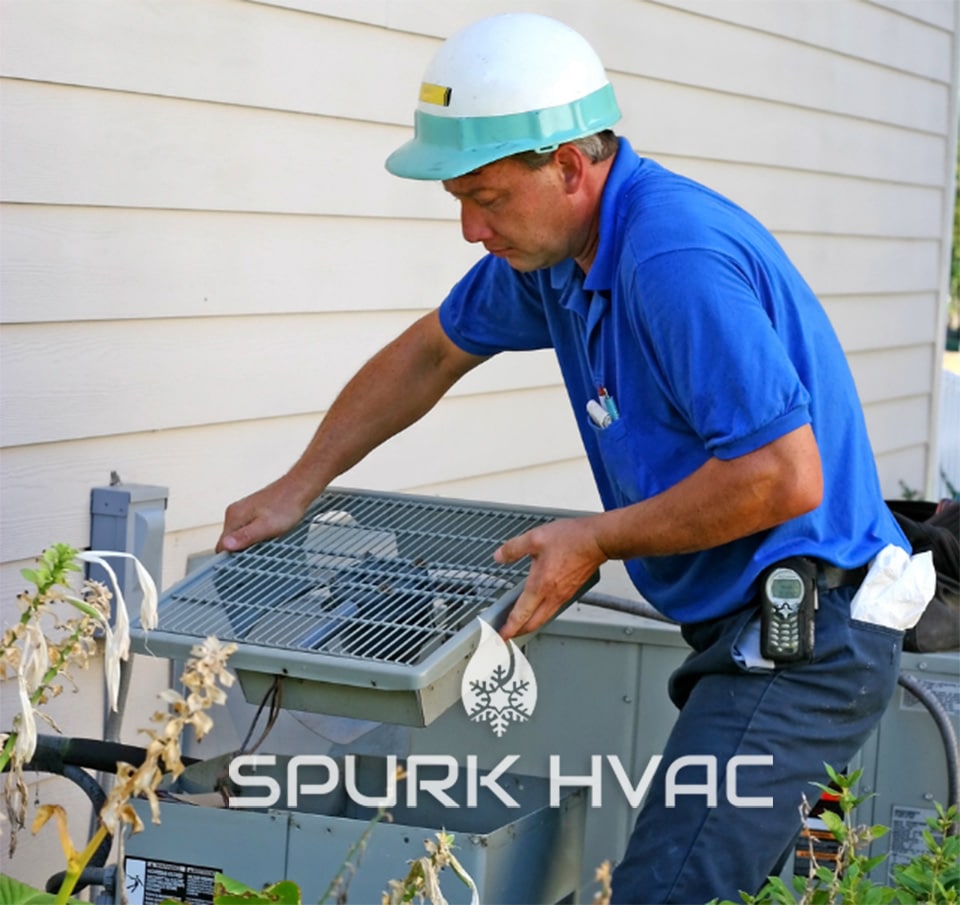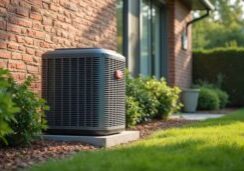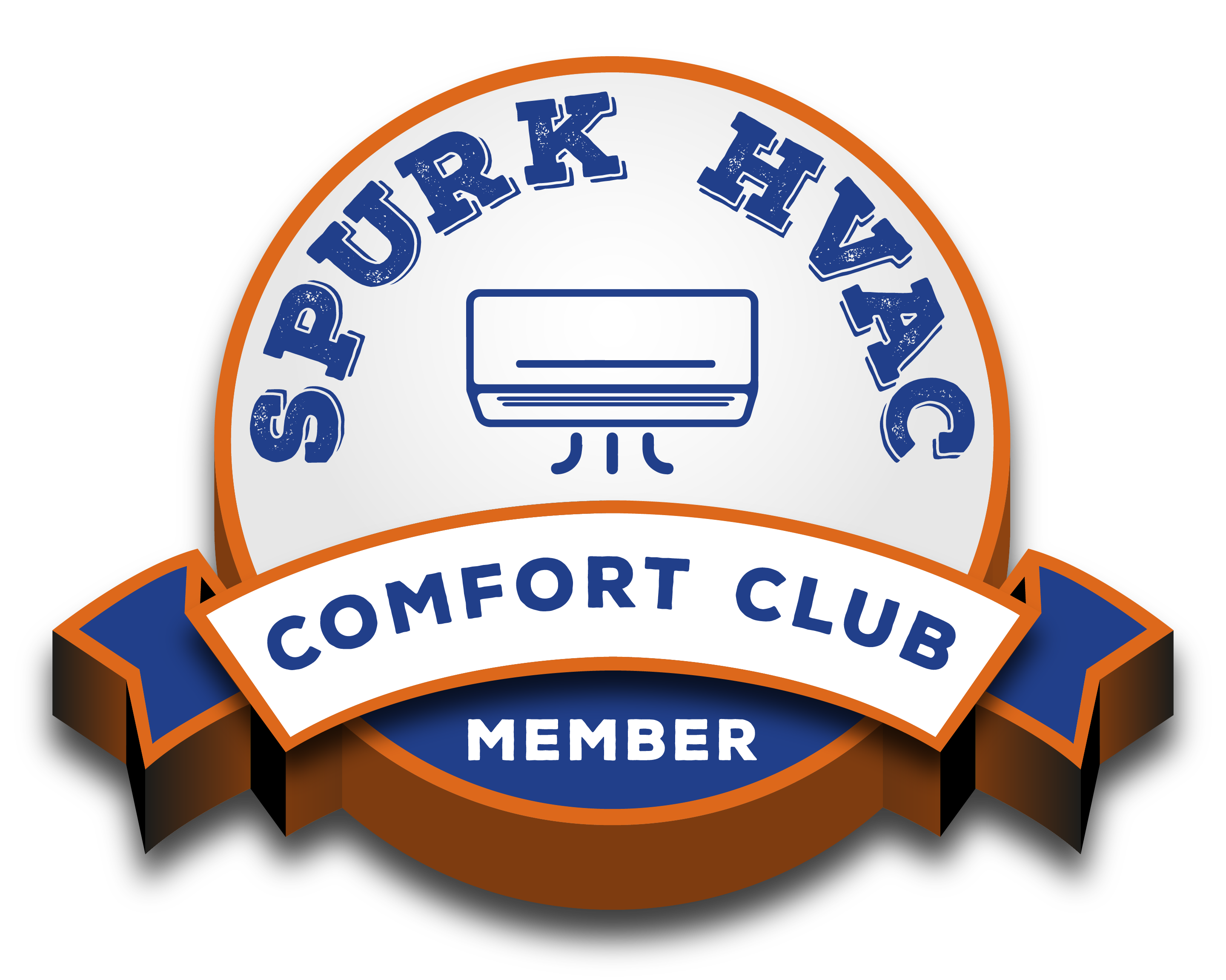Flowers are starting to bloom, trees are slowly budding, the lush green grass is growing taller, and the weather is warming … Don’t you just love spring? If you have allergies, probably not.
When the pollen count is out of control, all you want to do is hide in an air-conditioned room until fall. Unfortunately, that probably won’t help.
You might think your air conditioning system will remove those nasty allergens from the air. But without the right air filters for allergies, you’ll still be sniffling and sneezing your way through the season.
And it’s not just pollen you need to worry about! The summer heat and humidity provide a perfect environment for the growth of mold and mildew, which can also bring on allergy symptoms.
Learn the facts about choosing the right air filters for allergies, as well as other HVAC maintenance tips that can reduce your suffering this season.
FACT # 1 ABOUT AIR FILTERS FOR ALLERGIES:
Regular HVAC filters protect the equipment, not your lungs, and sinuses
Many people mistakenly believe that the air filters in furnaces and air conditioners keep dust and allergens out of the air.
In reality, that’s not what HVAC filters are designed to do. Their purpose is actually to keep dust out of the equipment to prevent damage to the system and keep it running efficiently.
While ordinary furnace and AC filters do help to remove some dust from the air (when changed regularly!), they do little to trap the microscopic particles that cause the sneezing and wheezing of allergy season.
That’s why you need special air filters for allergies that are designed to stop those tiny particles.
FACT # 2 ABOUT AIR FILTERS FOR ALLERGIES:
Ordinary paper filters can’t trap allergens
Those paper filters ordinarily used in your furnace and air conditioner are designed to trap large particles like dust that can accumulate on the motor and fans and reduce efficiency. However, particles like mold, bacteria, and certain types of pollen are much smaller in size, so they slip right through the fibers of those regular filters.
That means they get circulated through your ductwork and blown back into your space.
Air filters for allergies are designed to block much smaller particles, so your air stays cleaner. They are called “high energy particulate air filters” or more commonly, HEPA filters.
Because HEPA filters are made from densely packed layers of glass fibers instead of paper, the best ones are able to trap more than 99 percent of pollen, dust, and smoke particles and keep them out of the air you breathe every day.
FACT # 3 ABOUT AIR FILTERS FOR ALLERGIES:
All HEPA filters are not created equal
Unfortunately, it’s not good enough just to look for a HEPA filter for your air conditioner. To get the best results, you need to check the MERV ratings.
HVAC HEPA air filters for allergies are rated on how well they block particles of different sizes. The rating system is called the minimum efficiency reporting system, or MERV. The ratings range from MERV 1 to MERV 20, with the higher number indicating filters that are capable of removing the smallest particles, including many species of pollen.
Your Spurk HVAC service technician can help you get and install the best MERV-rated filter for your air conditioning and heating systems. Ideally, you want to choose a MERV rating of 17 or higher, which are most effective at blocking the particles that cause allergy symptoms.
IMPORTANT: Have your technician check to make sure your system can accommodate a HEPA air filter. In some cases, your system might need modifications to prevent performance issues due to reduced airflow.
FACT # 4 ABOUT AIR FILTERS FOR ALLERGIES:
You need to change those filters more frequently than you think
HEPA air filters for allergies need to be changed more frequently than ordinary paper HVAC filters, especially during the high pollen season.
That means changing them at least every other month, and possibly more often depending on your location. An HVAC service expert can advise you on what’s recommended for your equipment and your area.
If you haven’t changed your filter yourself, ask your HVAC tech to show you how it’s done, or read this related article:
How often do I need to change my air filter?
FACT # 5 ABOUT AIR FILTERS FOR ALLERGIES:
The right filter is only half the story
Using the right air filters for allergies does help to reduce the allergens in the air, but don’t forget about cleaning it from the rest of your HVAC system. If you haven’t had your air conditioning system maintained at least once every year, you’ve likely got quite a bit of buildup on the blower fans and in your ductwork.
Did you know that the air you breathe cycles through your HVAC system about 5 to 7 times each day? If you have not been using the right HEPA air filters for allergies AND not maintaining your air conditioning system, years’ worth of dust, pollen and even mold spores are sitting in on your equipment and in your ducts right now.
Get a Comfort Club Membership
When you invest in HVAC maintenance, your equipment is cleaned up and also tuned up, so you’ll not only get cleaner air, you’ll get better performance, more consistent comfort, and fewer breakdowns. Regular maintenance also helps lower your energy bills and prolong the life span of your equipment.
Learn more about air conditioning preventative maintenance by reading these related articles:
Benefits of regular maintenance
Why spring is the best time for air conditioner maintenance
ABOUT SPURK HVAC
Spurk HVAC was formed in 2018 and is located in Warrendale, Pennsylvania. We proudly serve Cranberry Twp., Wexford, Gibsonia, Mars, and the surrounding Greater Pittsburgh area.
We service all makes and models. If you are seeking a heating repair, heating system replacement, air conditioner repair, air conditioning maintenance, air conditioning replacement, or any other heating & cooling services. Whether you are looking for residential or commercial HVAC services, we look forward to any and all opportunities to become your preferred HVAC contractor.







